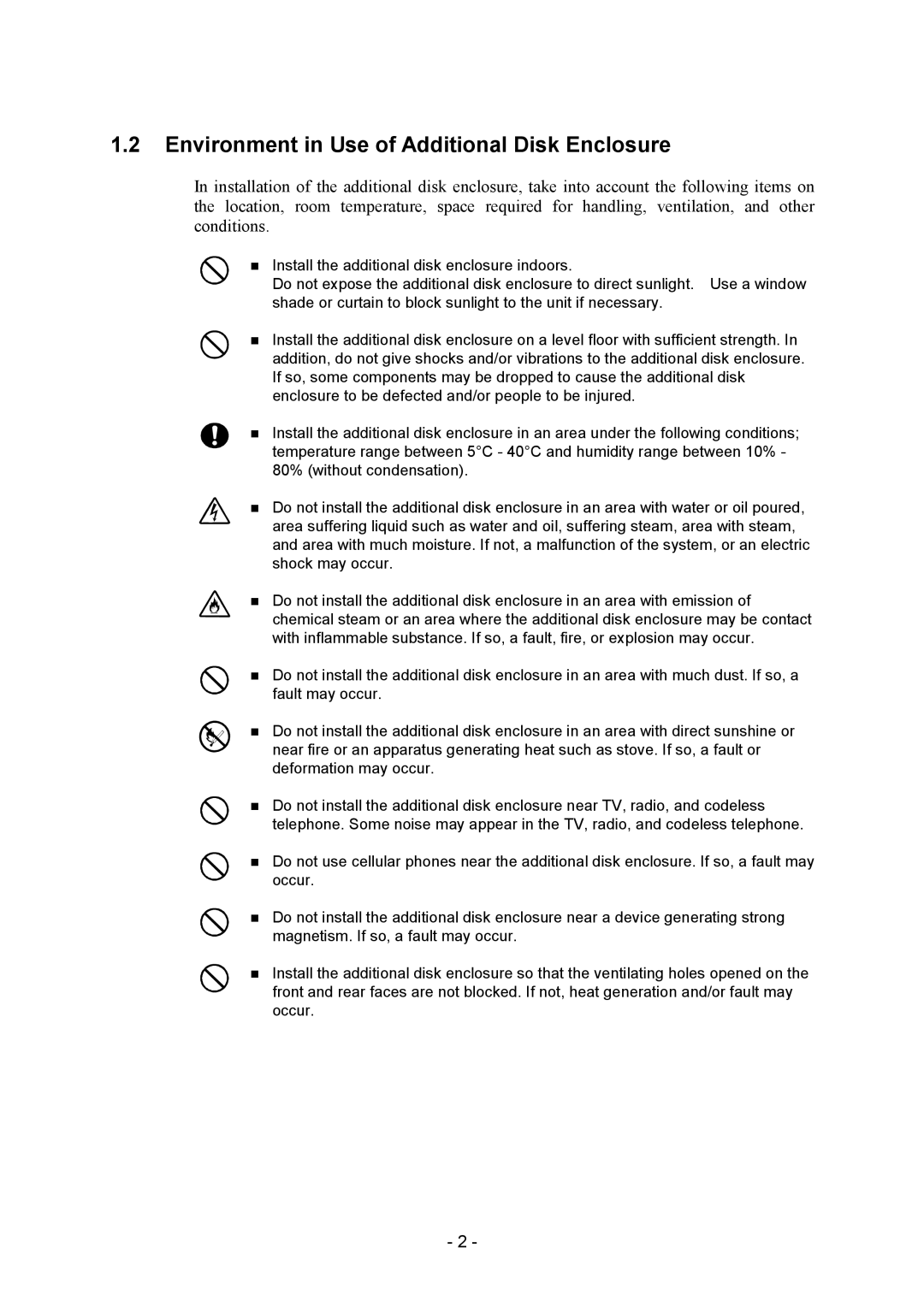1.2Environment in Use of Additional Disk Enclosure
In installation of the additional disk enclosure, take into account the following items on the location, room temperature, space required for handling, ventilation, and other conditions.
Install the additional disk enclosure indoors.
Do not expose the additional disk enclosure to direct sunlight. Use a window shade or curtain to block sunlight to the unit if necessary.
Install the additional disk enclosure on a level floor with sufficient strength. In addition, do not give shocks and/or vibrations to the additional disk enclosure. If so, some components may be dropped to cause the additional disk enclosure to be defected and/or people to be injured.
Install the additional disk enclosure in an area under the following conditions; temperature range between 5°C - 40°C and humidity range between 10% - 80% (without condensation).
Do not install the additional disk enclosure in an area with water or oil poured, area suffering liquid such as water and oil, suffering steam, area with steam, and area with much moisture. If not, a malfunction of the system, or an electric shock may occur.
Do not install the additional disk enclosure in an area with emission of chemical steam or an area where the additional disk enclosure may be contact with inflammable substance. If so, a fault, fire, or explosion may occur.
Do not install the additional disk enclosure in an area with much dust. If so, a fault may occur.
Do not install the additional disk enclosure in an area with direct sunshine or near fire or an apparatus generating heat such as stove. If so, a fault or deformation may occur.
Do not install the additional disk enclosure near TV, radio, and codeless telephone. Some noise may appear in the TV, radio, and codeless telephone.
Do not use cellular phones near the additional disk enclosure. If so, a fault may occur.
Do not install the additional disk enclosure near a device generating strong magnetism. If so, a fault may occur.
Install the additional disk enclosure so that the ventilating holes opened on the front and rear faces are not blocked. If not, heat generation and/or fault may occur.
- 2 -
